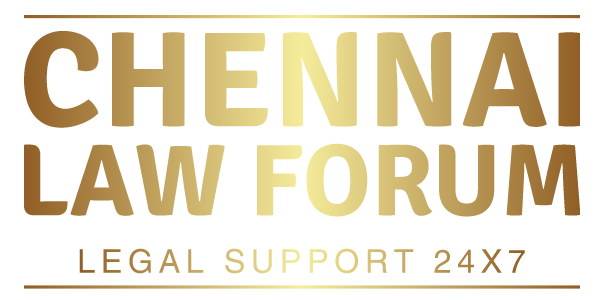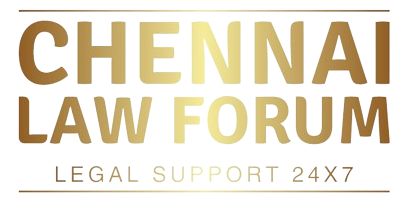According to the World Health Organization, expenses refer to the practice of preparing and giving drugs to someone based on a recipe from a Registered medical practitioner (RMP). Giving drugs by RMP has been ratified for the convenience of patients. This allows the availability of consultation, equipment related to treatment, recipes and drugs under one roof, i.e. Doctor’s clinic to the patient. Many problems limit drug expenditure practices with registered practitioners. This is unusual for RMP to train prescription options and release drugs, especially in semi-urban and rural areas, but multiple practices that prescribe and issue ethical and legal drugs.
Can medical practitioners release medicines?
The question of whether the clinical specialist must sell drugs in the clinic they have been raised on several occasions but are still not answered. In India, manufacture, storage, transportation, transportation, and administration of drugs and drugs are ruled under various provisions. and Cosmetic Law, 1940; Indian Medical Council Act, 1956; Pharmacy action, 1948; And narcotics drugs and laws of psychotropic substances, 1985. S.42 The pharmaceutical law requires a mandatory registration of pharmacists who sell drugs but free RMP from these requirements. Recently, the Indian Pharmaceutical Board in a round voice adopted a resolution that requires S.42 amendments to pharmaceutical laws allow RMP to sell drugs to their patients. Rajan B Rajan, former President of the State Pharmacy Board of Kerala, also demanded up on the implementation of this resolution. It is said that since RMP is a specialist drug that is not registered, they may not sell drugs.
Rules that regulate drug expenses by RMPS in India
Primary legislation dealing with drug dispensation by medical practitioners is the drug and cosmetics Act, 1940 (DCA). Form 20B DCA releases RMP from the procurement of licenses to remove drugs. Rules are framed under the DCA, namely drugs and cosmetic rules, 1945 (hereinafter referred to as ‘rules’), widely put requirements that allow RMP to start drugs. The K schedule of these rules regulates drug sales by medical practitioners. RMP can provide drugs to their own patients as long as the following conditions are met:
A. RMP should not save an open store
b. He should not sell at the counter
c. He should not be involved in import, manufacturing, distribution or sale of drugs in India in such a way that it makes it responsible for violations of the provisions of Chapter IV, DCA or rules.
d. Drugs must be purchased by the manufacturer or licensed dealer, and the purchase record must be maintained and must be open to check at any time by the designated inspector under the DCA.
e. Drugs must be stored in the right conditions as specified in the label.
f. No drugs will be sold outside the expiration date mentioned on the label or wrapper.
This condition also applies if the drug mentioned in the C schedule from rules is provided by RMP to other medical practitioners at their request.
In the K rule schedule, additional conditions have been prescribed if the drug to be excluded is mentioned in the G, H or X schedule of the rules. This is:
A. The drug must bear the label mentioning the name and address of the RMP to whom it is supplied.
b. The administrative route must also be labeled
c. Registers must be managed by RMP, list of drug names or preparation materials and quantities, prescribed doses, patient names, supply dates and time, and people who prescribe medicines.
d. . Each entry in the register must be numbered, and such numbers must be written on the label container.
e. Registers and recipes where drugs incurred must be preserved for at least two years from the date of the last entry in the register or the recipe date.
Non-compliance with this condition will make the RMP responsible for a penalty under Chapter IV DCA. According to S.27 (d), everyone who acts contrary to the rules must be punished with a prison sentence for a term that may not be less than one year but which can be expanded to two years and well that should not be less than twenty thousand rupees. Furthermore, the State Medical Council can continue against RMP.
Although RMP is not required to get a license to remove drugs to their own patients, if the drug to be issued is a controlled drug stated under the Narcotics and Psychotropic drug, 1985 (NDPS Law), RMP needs to secure a license for procurement, transportation, stock and dispose of these controlled drugs. Furthermore, narcotics psychotropic substances ruled, 1985, set the drug dispensation controlled by RMP. Under the rules of 52H and 52R, each RMP is needed to maintain a separate note for each patient in the form of no. 3E. Form no. 3D will be filled in detailing your daily account from all essential narcotics transactions. RMP is also required to maintain records of all important drug receipts and expenses in the way specified in the form of No. 3 hours.
Sabira M. v. Kerala and ORS status. Is a rating of landmarks from the Kerala High Court where the court argues that “no one other than a registered pharmacist will combine, prepare, mix or release any medication on the prescription. However, the provision will not apply to waste by a medical practitioner for the patient Alone, or with general sanctions or specifically state government for patients from other medical practitioners. “
Ethical Guidelines for Registered Medical Practitioners Remove Drugs
There has been a debate about RMP practices to sell drugs in their own clinic. This is considered an ethical violation because the doctor will benefit by prescribing expensive drugs to patients. There is a conflict of interest attached to this double role as a prescriber and seller of RMP drugs. In India, it is not unethical or illegal for RMP to sell drugs to their patients, provided that certain conditions are met. The Indian Medical Council, with the approval of the central government, has notified regulations that regulate RMP’s professional behavior in India below S.33 (M) the Indian Medical Council Act, 1956. The Indian medical code is known as the Indian Medical Council (professional behavior, Etiquette and Ethics) Regulation, 2002. According to this Regulation, RMPS may not run an open store to sell drugs prescribed by it. This limitation does not apply in the case of sales of medical or surgical instruments. The purpose of this ban is to prevent RMP to exploit its patients. After the amendment in 2016 with this regulation, RMP is now required to prescribe medicine with their generic name, preferably in capital letters. Furthermore, now is the responsibility of RMP to ensure rational recipes and drug use.
Responsibility of RMPS.
There is a danger inherent in profit motives from medical practitioners in drug expenses. RMP sells drugs to people having multiple interest in making profits and treating their patients. Someone must maintain an interest in ethical and efficient medical practices. In addition to meeting the requirements prescribed by law, RMP must disclose all relevant information to the patient. They must clearly reveal the name of the drug, its efficacy, side effects, economic-friendly alternative or substitute for prescribed drugs. RMP must refrain from taking part in the advantages of the sale of drugs. Medical practitioners should not, under any circumstances, put pressure on patients to buy drugs from them.
Conclusion
Because there are many ambiguities present in understanding this problem, the Indian medical association has also asked the government to form rules for ‘one drug-one-company’ to reduce the practice of prescribing expensive drugs to make profits by RMP and to regulate this problem under

